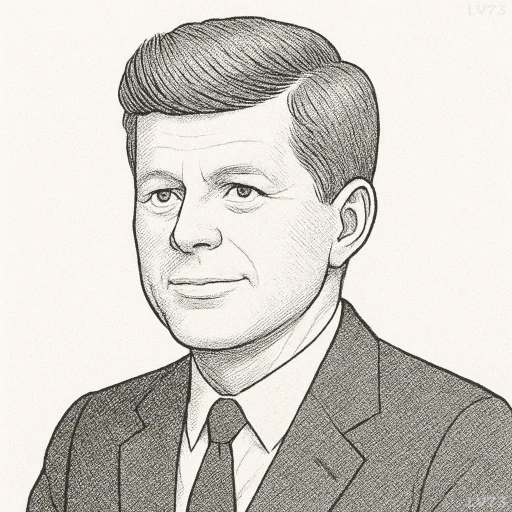“When power leads man toward arrogance, poetry reminds him of his limitations. When power narrows the area of man’s concern, poetry reminds him of the richness and diversity of existence. When power corrupts, poetry cleanses.”

- May 29, 1917 – November 22, 1963
- American
- Politician
table of contents
Quote
“When power leads man toward arrogance, poetry reminds him of his limitations. When power narrows the area of man’s concern, poetry reminds him of the richness and diversity of existence. When power corrupts, poetry cleanses.”
Explanation
In this statement, John F. Kennedy reflects on the role of poetry as a counterbalance to the dangers of power. He suggests that when individuals or leaders are consumed by the corrupting influence of power—whether through arrogance, narrow-mindedness, or moral decay—poetry offers a necessary reminder of the human experience and the limits of authority. Poetry, in this sense, is portrayed as a cultural and spiritual corrective, helping to reinvigorate the soul, challenge the ego, and widen one’s perspective. Kennedy’s words suggest that, in moments when power seems to overwhelm or distort an individual’s worldview, the arts—particularly poetry—can help restore a sense of humility, connection, and awareness of the broader realities of life.
Kennedy’s reflection on the relationship between power and poetry can be understood in the context of the Cold War era, when political tensions and global struggles often led to a concentration of power in the hands of few leaders, sometimes resulting in hubris, injustice, or an overly narrow vision of the world. As president, Kennedy was acutely aware of the ethical responsibilities of leadership, particularly in the context of nuclear threats, the Civil Rights Movement, and issues of international diplomacy. By invoking poetry, Kennedy underscores the idea that art, in all its forms, has the potential to remind leaders—and citizens alike—of the larger human story, of empathy, and of the moral complexities that must guide decisions of power. In times when the world feels like it is governed by raw force, poetry invites us to pause, reflect, and reconnect with the fundamentals of humanity.
In modern times, Kennedy’s words still hold deep relevance. As we face political polarization, technological disruption, and global crises, it is easy for those in positions of power to become disconnected from the humanity they are meant to serve. The proliferation of social media, for example, has led to a narrowing of concerns as individuals are often exposed only to echo chambers of like-minded views. In this climate, poetry and other forms of art can serve as powerful tools for reconnection—reminding us of the richness and diversity of the human experience. Poetry can also serve as a moral compass, helping to cleanse the corrupting influence of power by challenging us to reflect on our own values, beliefs, and responsibilities. Just as it has in past generations, poetry today has the potential to provoke reflection, inspire change, and restore a sense of collective humanity in the face of the overwhelming forces of power.
Would you like to share your impressions or related stories about this quote in the comments section?




